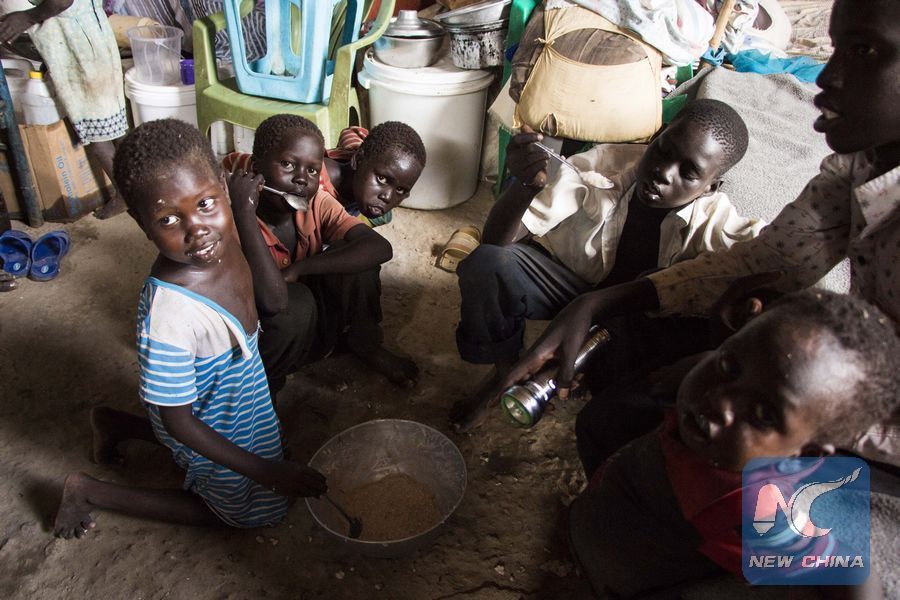
File photo shows children are eating at Mangaten camp in Juba, capital of South Sudan, Sept. 14, 2018.(Xinhua/Denis Elamu)
JUBA, Dec. 14 (Xinhua) -- At least 15,000 children remain separated from their families or missing, five years after conflict first broke out in South Sudan in 2013, the UN children's fund (UNICEF) said on Thursday.
According to the UN agency, more than 4 million people have been uprooted by the fighting, the majority of them children.
"Every reunification is the result of months and often years of work to trace missing family members in a country the size of France but without any basic infrastructure," Leila Pakkala, UNICEF's regional director in eastern and southern Africa, said in a statement issued in Juba.
Since the conflict began, UNICEF and partners have reunited close to 6,000 children with their parents or caregivers, Pakkala said.
She said the suffering children have endured during the fighting has been unimaginable, but the joy of seeing a family made whole again is always a source of hope.
UNICEF said separated and unaccompanied children are more susceptible to violence, abuse and exploitation, which makes returning them to their parents an urgent priority.
Half of the reunited children, 3,000, are still receiving assistance from case workers, putting the total number of children in need of support at 18,000.
UNICEF said the recently signed peace agreement between South Sudan's warring parties could provide an opportunity to step up this work and other humanitarian assistance.
"There have been encouraging developments on the ground since the peace agreement was signed," said Pakkala.
UNICEF said it hopes that previously inaccessible areas will begin opening up, allowing them to deliver life-saving assistance to more people in the year ahead.
South Sudan descended into civil war in late 2013, and the conflict has created one of the fastest growing refugee crises in the world.
A peace agreement signed in 2015 to end the violence was again violated in July 2016 when the rival factions resumed fighting in the capital, Juba.
The UN estimates that about 4 million South Sudanese have been displaced internally and externally.
President Salva Kiir, his former deputy Riek Machar and several opposition groups in September signed a new power-sharing deal aimed at ending the five-year-old conflict.

